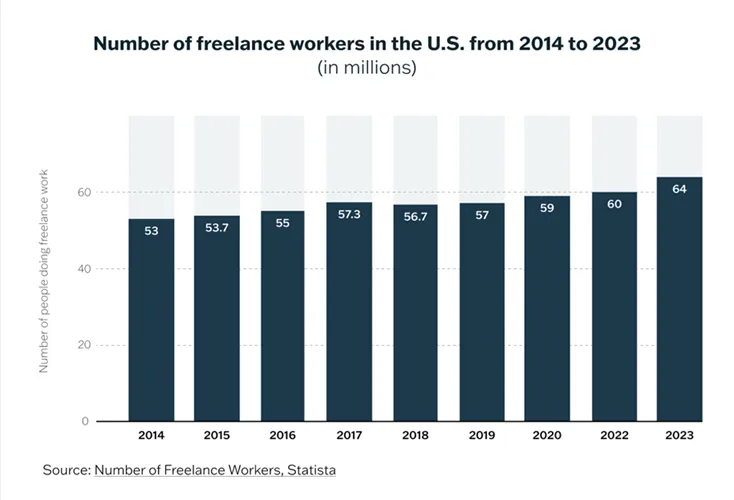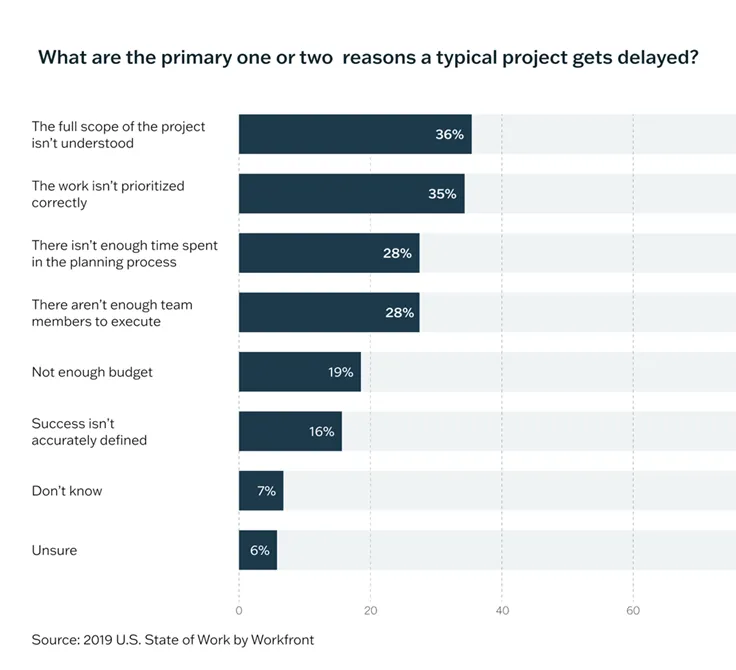August 8, 2024 - Firms everywhere are facing an acute and persistent skill gap. They need people with a wider variety of abilities than they currently possess but they aren’t making enough progress on building a training program — partly because they need to train people in skills that nobody in the firm yet has.
This is a big challenge for leaders and increasingly, they are outsourcing to find that talent.
In this article, we discuss the skill gap, what leaders are doing, and the intermediary role an external talent cloud can play in resolving this issue for your business. Many of the ideas are drawn from original research we conducted into 1,000 private companies, where executives largely agree that outsourcing can be a beneficial fix.
Outsourcing is less expensive than you think
Nearly half of our 1,000 respondents said they plan to resolve their skill gaps externally and aim to achieve 25% of their needs through outsourcing. The skill gap appears particularly painful in technology — 90% of firms say they must look outside their organization if they want to capitalize on technology, from ERPs and analytics to AI.
Does outsourcing disadvantage your present employees and prevent your company from accruing key skills? Just the opposite, say researchers writing in the Harvard Business Review. Outsourcing your finance needs can be more efficient, effective, and less expensive than full-time staff in the long run, especially given the industry’s present trajectory. The rate of change is indeed accelerating, and today’s full-time hiring sprees could be tomorrow’s layoffs.
Outsourcing can help address the talent shortage
Finance teams are facing a chronic talent shortage. Eighty-four percent of CFOs say it’s one of their top concerns and the mess of misperceptions around accounting, from burnout to how the industry is viewed, has dried out the talent pipeline so thoroughly it’s unlikely to recover soon.
And that’s not even fully considering that accountants, budget analysts, tax preparers, and financial analysts are at the top of the list of jobs most exposed to AI, and likely to be replaced or be seriously disrupted by it.
Outsourcing can be one immediate fix — by hiring a firm, you can effectively outsource all these hiring, management, staffing, and retention challenges. Though there are tradeoffs, it means your outsourcing partner is the one that must keep those seats filled.
Outsourcing helps you access open talent
Sixty-four million Americans freelanced in 2023, adding $1.27 trillion to the economy. This number has steadily risen since the dawn of the internet and accounting has been one of the top roles on freelance platforms since the start.
Partly, this is a trend about people building niche businesses around owned expertise (which includes one in nine CFOs). They feel it is a “private career accelerator.” These are individuals who may not want a full-time job, whom you can only access through an outsourcing partner. Working with a firm that already has that talent can help you eliminate expensive job searches.
Technology makes fractional work more cost effective
Every week there’s a new study about how remote work is or isn’t effective, but these headlines miss the point. Working remotely is substantially different depending on the role, on the company, and how the company is set up to enable people in those roles.
It’s true that remote workers can be less effective at organizations where there’s no trust, accountability, guidance, or infrastructure. For example, a firm that seeks to replace full-time employees with a bunch of fractional freelancers through various freelancing platforms is unlikely to succeed. Its managers will struggle to grant the right access and guidance to each freelance individual and managing them may be more work than it’s worth.
Whereas if you outsource to an intermediary that serves as the communication nexus between your business and outsourced talent, remote work can be more effective. It can provide that layer of communication and bridge the gap with time-saving technology, from cloud ERPs to file sharing, collaboration, and team chat.
Lack of an external talent cloud is a challenge to outsourcing
Outsourcing has massive benefits when it works. How do you ensure it works? With what several authors in the Harvard Business Review call an external talent cloud. What this means, simply, is an outsourced firm that provides a basket of services to eliminate all the complexity around meaningfully incorporating external part-time workers. Notably:
- Access to talent
- Processes for managing that talent and projects
- A strategic understanding of your company’s goals
That means a firm or agency that already has warm relationships and history with these individuals with its own full-time managers and leaders who can understand your goals and decompose them into actionable work. It addresses outsourcing’s greatest challenge — most workers don’t understand the assignment. When they are part of a talent cloud, they do.
Meanwhile, that cloud offers all the benefits of outsourcing — less overhead, no hiring costs, and fewer management hours dedicated to team development. It brings the infusion of skills your firm needs and leaves you adaptable.
Citrin Cooperman’s Business Process Outsourcing is a leading talent cloud, well-equipped to help your business address its unique staffing challenges. If your team is curious about outsourcing to resolve immediate staffing issues, please contact Mike Zyborowicz or Kieran Higgins.


